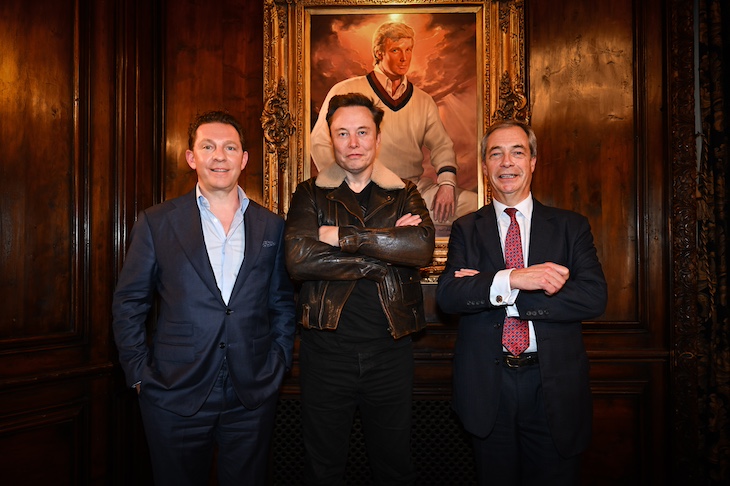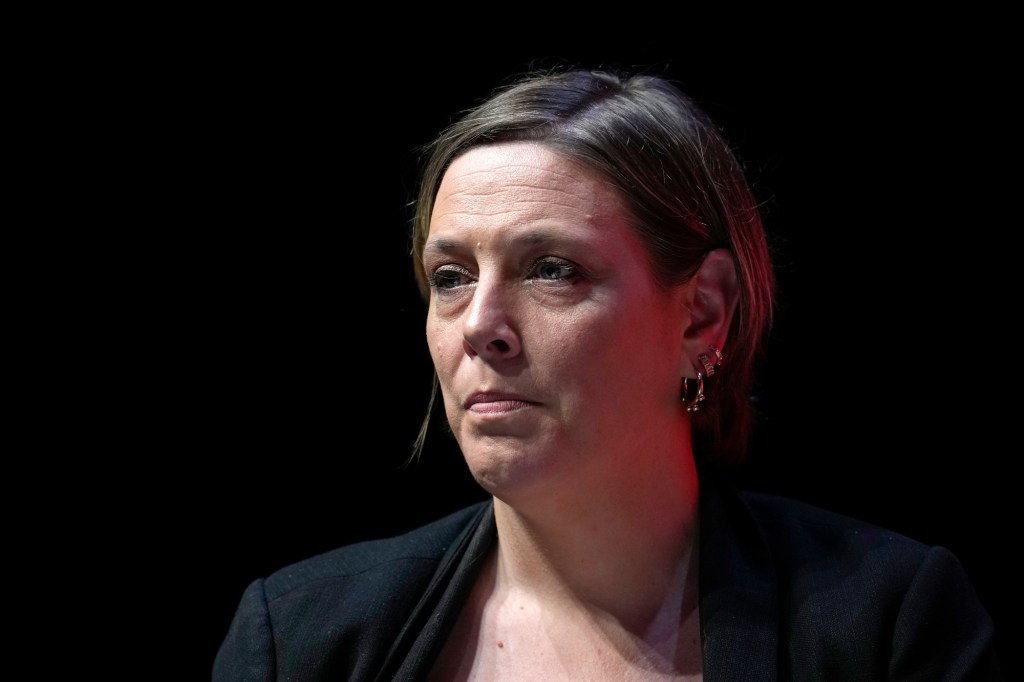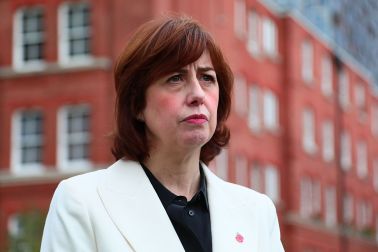The meeting between Nigel Farage, the property developer Nick Candy and Elon Musk has prompted an all-too-predictable fit among media commentators.
Are we proud, democracy-loving Britons just going to stand by and watch as American billionaires and the radical right buy out our politics? Are we going to let hedge-funders and the real-estate tycoons gut British institutions for gain, privatise our beloved NHS, and finally execute the great neoliberal scheme to enrich the very few at the expense of the very many?
It’s almost as if, by posting a picture of himself, his new money-man Candy and the world’s richest man, Farage was trying to annoy his opponents. Heaven forbid. The Guardian wants to tighten up our electoral laws so that Elon Musk will not be able to fund Reform. ‘Look, I think British politics is asleep about this,’ says Lewis Goodall, who likes to start his sentences by saying ‘Look’, on Newsnight. ‘We’re seeing populist forces, particularly on the populist right, doing extremely well throughout Europe. There’s no reason to suggest that Britain will be immune to that. We can see Reform doing better and better in opinion polls and I think the Musk connection is central to that.’
“What is Nigel Farage’s strategy? Why is Elon Musk so interested in Britain?”@lewis_goodall responds to @vicderbyshire – saying ministers are “asleep” to the potential effects of the world’s richest man donating millions of dollars to Reform UK.#Newsnight pic.twitter.com/tnsFkatZ12
— BBC Newsnight (@BBCNewsnight) December 17, 2024
It’s funny that Farage, whose party has just five seats in Parliament, Candy and Musk trigger this gag reflex – and not, say, Keir Starmer, the man who is Prime Minister, bending over to accommodate Larry Fink, the CEO of BlackRock, a business whose financial power dwarfs Elon Musk’s. Might BlackRock’s profiteering from Ukraine, the arms industry, and large pharmaceutical companies have something to do with the policies of the British government? Or is it dangerously ‘populist’ just to ask?
Power tends to corrupt and absolute power corrupts absolutely, as Lord Acton said, and pundits are right to be wary of all rich actors, foreign and domestic, meddling in politics. But to treat Elon Musk as a new or unique threat to our political system is either naïve or disingenuous. It’s to muddle symptom with disease, or effect with cause.
The electorate isn’t quite as biddable as Lewis Goodall might think. Reform isn’t doing well in the polls because Elon Musk is behind them – though his ownership of the social media platform X enables pro-Reform views to be expressed and heard more than on other media networks.
Reform is thriving because voters are sick of Labour and the Conservatives, and a growing number of people feel that the present political system is more nefarious than Farage could ever be. They believe Farage and others who talk about the suffocating power of the ‘uniparty’ that runs Britain, especially on the topic of immigration. British voters want more disruption, not less.
I don’t recall the voices now fulminating against Candy, Farage and Musk being quite so het up about Lord Sainsbury’s funding of Labour, say, or the international financiers who backed Remain. I suppose we all only become exercised about ‘money in politics’ when it benefits politicians we dislike.
Freddy Gray discusses his argument on the latest Coffee House Shots podcast alongside Kate Andrews and Katy Balls:








Comments